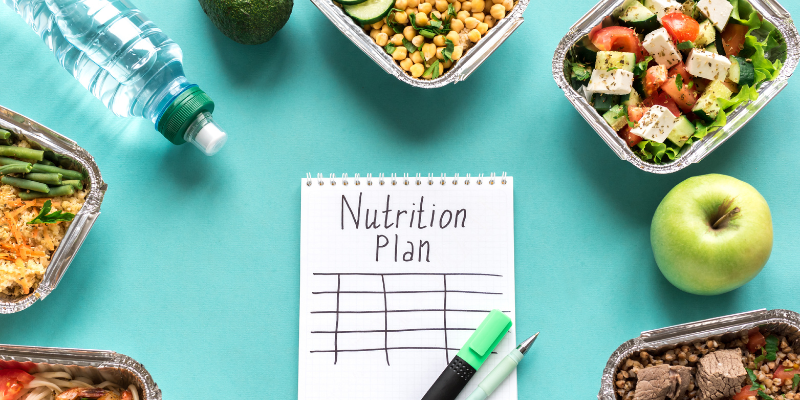Posted On: March 9, 2023 by NARA in: Best Practices Exercise Goals Long Term Care Managed Care Physical Therapy Wellness Programs

Did you know that March is National Nutrition Month? The Academy of Nutrition and Dietetics created this campaign 50 years ago to promote learning about a healthy lifestyle. This year's theme is “Fuel for the Future” and is focused on healthy eating while also focusing on sustainability. To learn more about getting involved in National Nutrition Month, visit this page!
Nutrition has a significant impact on the effectiveness of physical therapy and recovery. Even though physical therapy is focused on the physical components of recovery, nutrition is just as important during the recovery process. Continue reading to find out how nutrition affects physical therapy.
-
Physical Therapy Helps with Inflammation
-
Inflammation is a vital aspect of the recovery process, but excessive inflammation can cause further damage during this phase. Thus, it’s essential to minimize inflammation, and nutrition can play a critical role in doing so by incorporating anti-inflammatory foods into your diet. One excellent nutrient for reducing inflammation is omega 3, which can be found in foods such as fish oil, olive oil, avocado, almonds, and walnuts. Fruits and vegetables are also great foods for reducing inflammation as they are rich in antioxidants, especially broccoli and citrus fruits.
-
Rebuild Muscles with Physical Therapy
-
Muscle loss is common among physical therapy patients, and it is important to utilize the physical components of rehabilitation as well as utilize the nutritional components to help rebuild muscles. Protein is important in repairing and rebuilding muscles, but many patients will experience anabolic resistance, which affects the ability of muscles to effectively synthesize protein. To combat muscle loss and anabolic resistance, it may be helpful to incorporate small amounts of protein throughout the entire day and choose a protein that is easily digestible.
-
Weight Gain Concerns
-
Patients undergoing physical therapy, particularly athletes accustomed to regular exercise, may have concerns about gaining weight. This is a common fear, but it's important to note that under-eating and inadequate nutrition can delay the healing process. During recovery, the body naturally works harder, and the metabolism speeds up. As a result, an extremely low caloric intake is unnecessary, and under-eating can lead to muscle loss, compromising the effectiveness of rehabilitation.
-
It's essential to ensure that the body receives adequate nutrition during physical therapy, as it helps to support the healing process. Rather than under-eating, patients can maintain a balanced diet that provides their bodies with the necessary nutrients while keeping their caloric intake in check. By doing so, patients can support their recovery while minimizing the risk of weight gain.
When we think about physical therapy, nutrition may not immediately come to mind but it actually plays a key role in the recovery process and physical therapy itself. Our bodies need a diet full of nutrients to help speed up recovery and improve the overall effectiveness of rehabilitation.
If you are interested in learning more about NARA and our membership options, please contact our team or visit our website for more information!

0 comments